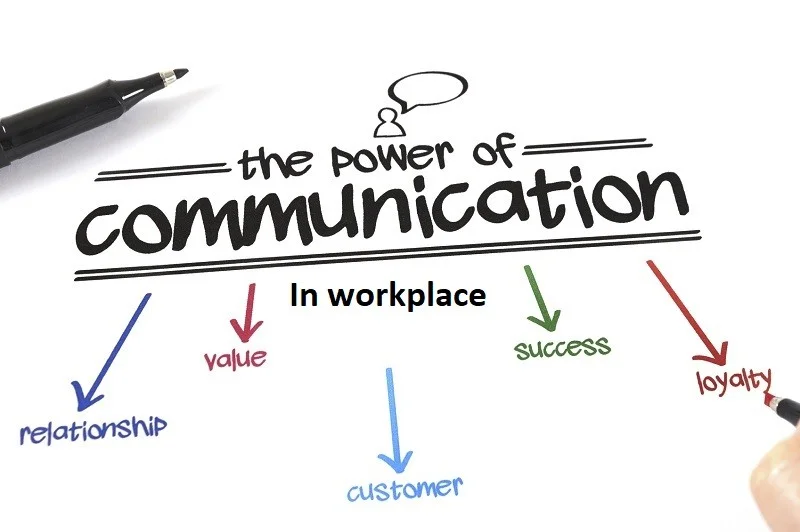Workplace communication and conflict resolution: In today’s fast-paced and interconnected work environment, effective communication and conflict resolution are essential skills for any successful organization. Poor communication and unresolved conflicts can lead to decreased productivity, low employee morale, and even legal problems. This article explores the importance of communication in the workplace and provides practical strategies for conflict resolution, promoting a harmonious and productive work environment.
Importance of communication in the workplace

Effective communication is the lifeblood of any organization. It lays the foundation for collaboration, innovation and growth. Here’s why communication is important in the workplace:
a. Increases team collaboration: When team members communicate openly and effectively, they can collaborate more efficiently, share ideas, and work together toward common goals.
b. Increases employee morale: Clear communication makes employees feel valued and informed, leading to higher job satisfaction and morale.
c. Prevents misunderstandings: Miscommunication often leads to misunderstandings, which can lead to clashes. Clear communication helps prevent these problems in the first place.
d. Facilitates change management: In times of change or crisis, effective communication can calm fear, address anxiety, and lead teams through change smoothly.
Effective workplace communication strategies
To build a culture of effective communication in your workplace, consider implementing these strategies:
a. A Open and honest communication: Encourage employees to talk openly and honestly with each other. Create a safe space for feedback and dialogue, where all opinions are valued.
b. Active listening: Encourage active listening skills by teaching employees to focus on the speaker, ask clarifying questions, and avoid interruptions.
c. Use multiple communication channels: Use different communication tools and channels, such as email, video conferencing, and in-person meetings, to accommodate different communication styles and preferences.
d. Set clear expectations: Make sure all team members understand their roles and responsibilities. Clarify goals, timelines, and project expectations.
e. Regular check-ins: Schedule regular one-on-one meetings between managers and employees to discuss progress, challenges and career development.
The role of conflict in the workplace

Conflict is a natural part of any workplace due to differences in personalities, opinions and goals. However, when left unresolved, conflict can escalate and have a detrimental effect on productivity and employee satisfaction.
Conflict resolution techniques
To manage and resolve conflicts effectively, consider implementing these strategies:
a. Identify the source: Start by identifying the root cause of the conflict. Is it because of a misunderstanding, different goals or a clash of personalities?
b. Encourage communication: Encourage the parties involved to communicate openly and respectfully. Create a platform where they can express their concerns and views.
c. Mediation: In cases where communication alone does not resolve the dispute, consider involving a neutral third party to mediate the discussion.
d Establish a resolution plan: Develop a plan for collaboratively resolving conflict, outlining specific actions, deadlines, and responsibilities.
e Monitor progress: Continuously monitor the progress of dispute resolution efforts and make adjustments as necessary.
f Provide conflict resolution training: Offer conflict resolution training to employees and managers to equip them with the skills needed to navigate conflict constructively.
Facilitate effective conflict resolution

Resolving disputes constructively provides several benefits:
a. A Improved Relationship: Dealing with conflict can build better relationships among team members, increase cooperation and morale.
b. Increased productivity: When conflicts are resolved, employees can focus on their work without distractions, resulting in increased productivity.
c. Learning opportunities: Conflict resolution can serve as learning opportunities, helping employees develop better communication and problem-solving skills.
d. Retention: A workplace that effectively resolves conflict is more likely to retain talented employees who value a positive work environment.
In conclusion, effective workplace communication and conflict resolution are integral to the success of any organization. By prioritizing open and honest communication and implementing conflict resolution strategies, businesses can create a harmonious work environment where employees thrive, collaborate and contribute to the growth of the organization. Investing in these skills benefits not only the employees but also the overall health and success of the organization.
Read Also: Work life balance and managing stress at work
![]()






One thought on “Workplace communication and conflict resolution”